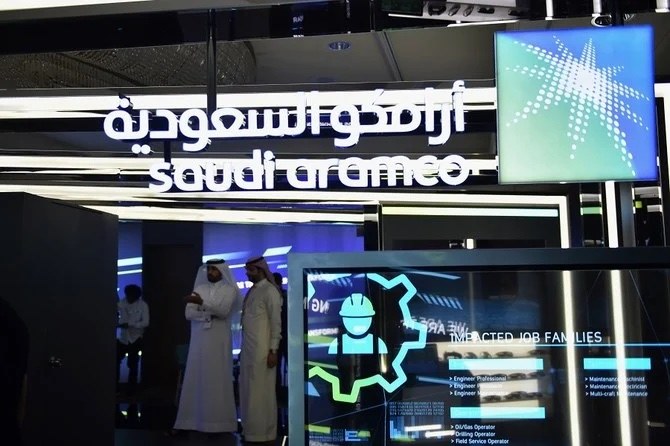RIYADH: Saudi oil giant Aramco reported a net profit of $29.1 billion for the second quarter of 2024, reflecting a 6.59 percent quarter-on-quarter increase, despite challenging market conditions.
For the first half of the year, the company’s net income reached $56.3 billion. Operating cash flow amounted to $64.7 billion in the six months to the end of June, with $31.1 billion of that coming in the second quarter of 2024.
During a press conference following the results, Amin Nasser, Aramco’s president and CEO, said: “We remain positive about the outlook for global oil demand. Despite concerns about an economic downturn, global oil demand has been resilient, and in the first half of this year, demand saw record growth.”
The company reported SR828.74 billion in revenue for the first half of the year, registering a 0.9 percent increase from SR804.8 billion in the same period of 2023, driven by higher crude oil and refined product prices, as well as higher volumes of refined and chemical products sold.

He added: “As you have seen from our results today (Aug. 6), Aramco has once again delivered market-leading performance with strong earnings and cash flow in the first half of the year. On the financial side, we continue to maintain one of the most robust balance sheets in our industry.”
Aramco has declared a base dividend of $20.3 billion for the second quarter and a performance-linked dividend of $10.8 billion, which will be paid in the next three months.
The company expects to declare total dividends of $124.2 billion for 2024, highlighting its strong financial position.
In June, as part of the secondary public offering, Aramco acquired 137.6 million ordinary shares from the government for a cash payment of $1 billion.
The company’s secondary public offering and $6 billion bond issuance attracted significant investor interest. The firm also advanced its gas expansion with over $25 billion in new contracts, aiming for a 60 percent increase in sales gas production by 2030.
“We have also continued to create and deliver both value and growth, as demonstrated by the positive investor response to the Government’s secondary public offering of Aramco shares and our recent $6 billion bond issuance. Our drive to create value is supported by our distinctive long-term competitive advantages, our exceptional financial resilience through cycles, and our strong balance sheet,” he added.
In response to Arab News’ question about refined and chemical products, Nasser said that Aramco is set to witness much more robust growth.
“In the first half, we saw significant growth, but we are expecting even more growth, especially in jet fuel in China. We are looking at almost 20 percent growth in jet fuel,” he added.
Aramco’s CEO explained that jet fuel and kerosene production was 7.2 million barrels per day in 2023, with a projection to increase to 7.7 million bpd in 2024.
Nasser continued: “We are also seeing strong growth in gasoline and a lot of the feedstock going into petrochemicals. This growth is supported by our investments in China, where they are putting much feedstock into liquid-to-chemical processes.”
The CEO said despite global supply and demand imbalances and geopolitical tensions the market is largely overlooking these issues, and he expects a healthy outlook for the rest of the year.
Nasser added that total demand in China for the second half of the year is projected to be around 17.5 million bpd, up from 16.8 million bpd in the first half of 2023, driven by jet fuel and the liquid-to-chemical sector.
The state-owned oil giant reported total revenues of $113.52 billion in the second quarter of the year, compared to $107.35 billion for the same period in 2023.
For the three months to the end of June, free cash flow decreased compared to the same quarter in 2023. This decline was mainly due to lower operating cash flows from reduced earnings and unfavorable changes in working capital.
However, this was partially offset by a reduction in cash payments for income, zakat, and other taxes.
Regarding the downstream sector, Aramco’s Chief Financial Officer, Ziad Al-Murshed, explained that the negative earnings before interest and taxes results were mainly due to inventory revaluation, not actual losses.
He added a reduction in refining margins, especially in Asia, though margins in the US are still healthy. While chemical margins have improved slightly, they remain weak.
Al-Murshed said that Aramco’s focus on converting liquid molecules into chemicals remains strong, particularly in China due to its market size and expansion opportunities.
Nasser also highlighted key strategic developments, noting that the first phase of Jafurah is scheduled for 2025, the second phase for 2027, and a full ramp-up to 2 billion cubic feet of sales gas by 2030.
He said: “The importance, as you know, of Jafurah is not only the gas. What you need to consider also is the ethane that we are anticipating will be coming out of Jafurah. This is an important feedstock for the chemical industry. Jafurah alone, with this increment, will bring almost more than 40 percent of what we have today in ethane, which is crucial for our chemical growth in the Kingdom.”
Nasser also noted that significant progress was made in key strategic areas during the second quarter, building on these strengths.
The state oil firm acquired a 10 percent stake in HORSE Powertrain Limited and a 40 percent interest in Gas & Oil Pakistan Ltd. It also partnered with Pasqal to install Saudi Arabia’s first quantum computer.























